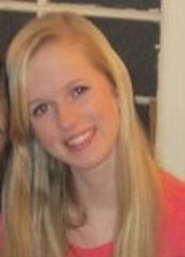
While archaeology may seem to deal exclusively with the past, this study of artifacts can have a significant impact on the present. Archaeology can help provide proof of historical events and influence political and social claims. Susannah Wales ’13 is spending the summer working with Assistant Professor of Anthropology Nathan Goodale and Visiting Instructor of Anthropology Alissa Nauman in British Columbia, Canada. Wales is interviewing members of the Sinixt First Nation to study their struggle for legitimacy through archaeology for the project “Building a Community Around Archaeology.”
The Sinixt First Nations group is a tribe that, according to the Canadian government, is “extinct,” yet Sinixt tribe members are still living throughout Canada and the U.S. The archaeological site in Slocan Narrows that Goodale’s group is working in is very important to Sinixt culture.
However, some of this land will soon be sold, possibly to logging companies that will destroy the land. Because of their current status, the Sinixt people cannot intervene on their own behalf to save the land, which is sacred and culturally treasured to them. The possibility of logging also poses a loss to archaeologists wishing to learn about prehistoric life in the Slocan Valley. Through archaeology, the site could help provide data that the Sinixt tribe could use to substantiate its legal fight for legitimacy.
According to Wales, “This issue demonstrates that the disenfranchisement of First Nations groups is still an important issue, and also that the protection of archaeological sites and the rights of Aboriginal people are necessarily linked.”
Wales, a double major in archaeology and philosophy, is interviewing people associated both directly and indirectly to the Sinixt tribe in order to gather their opinions on the archeological site in Slocan Narrows.
Her project is related to the Hamilton College Archaeology Field School, which has sent 10 students to work on the Slocan Narrows Archaeological Project (SNAP) this summer. Wales’ investigation takes place in Canada, where she is conducting many of her interviews, as well as in the States, where she is finishing her research and doing data analysis. Though she is conducting many of her own interviews, Wales is also utilizing some interviews that were recorded by Erica Kowsz ’11 as part of her senior project in archaeology. Her other research includes reading about the Sinixt people, and “reading articles about the relationship between oral history and archaeological truth.”
After taking and transcribing the interviews, the goal of Wales’s project is to create a condensed, thorough argument about the important connection between archaeology and community. She finds her project interesting because of the unique, emotional stories that she is hearing and transcribing. Goodale is running the Field School, and so Wales is able to keep in contact with him as her project develops. On the Hill, Wales is vice-president of the sorority Phi Beta Chi.
To the Sinixt people, archaeology is part of a passionate fight for recognition. This aspect of the Slocan Narrows Project brings a personal and immediate feel to a field that generally may seem to be about history.
Susannah Wales is a graduate of the Wheeler School in Providence, R.I.
Posted July 29, 2011
